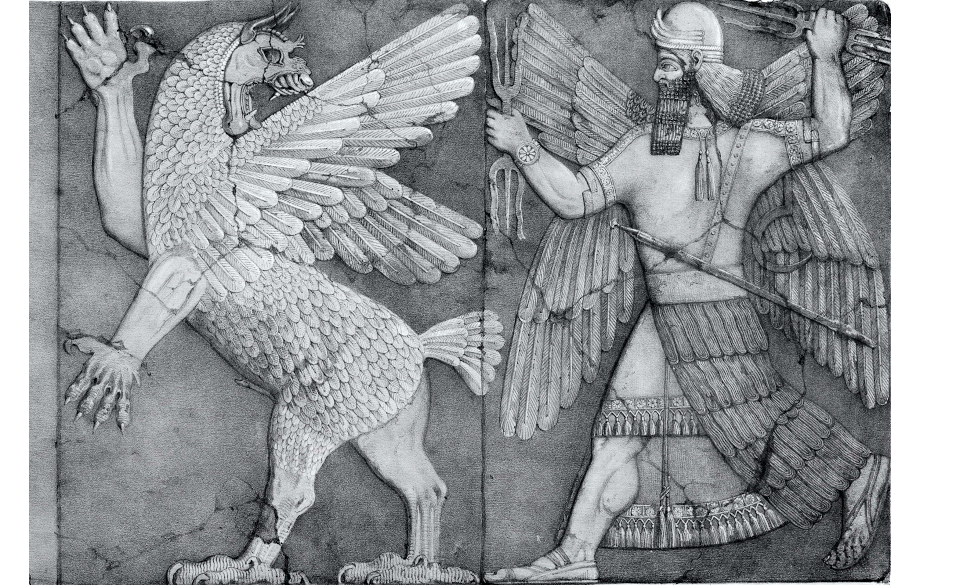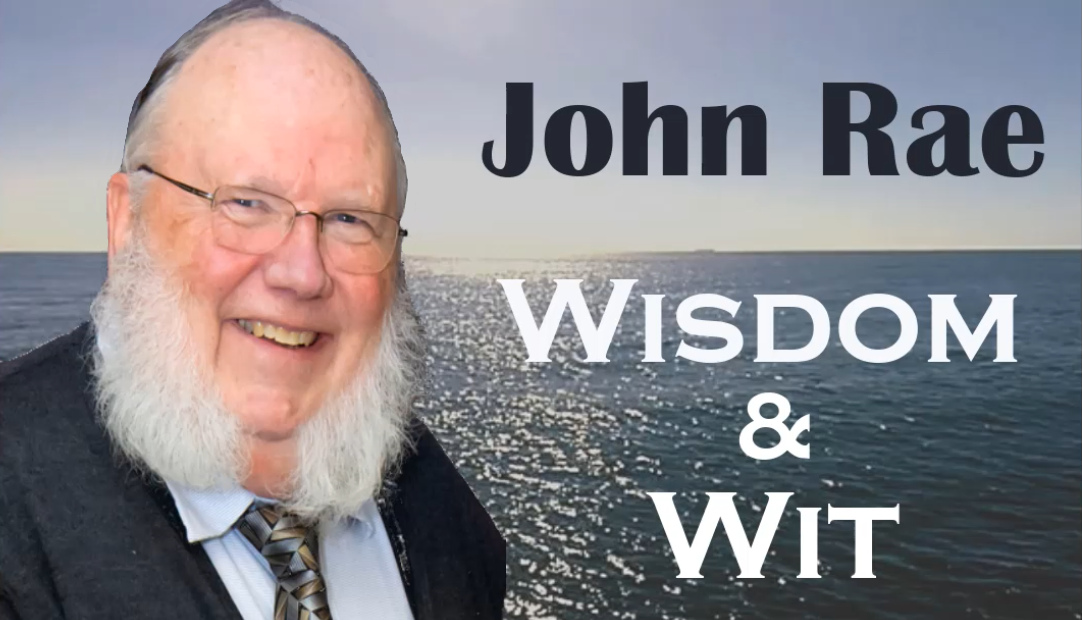In the world of commercial software systems ‘scalability’ is of the utmost importance. For example, if you are going to structure your new business around an accounting and management system you would want to invest in one that will be scalable as your business grows in size and complexity. If the software that you purchased has worked seamlessly over the range of domains that you have grown through, you will have the satisfaction that you have chosen wisely.
The Bible is structured as a set of ‘scalable’ narratives that can communicate meaning over a range of domains, with the end result that these narratives can evolve from story into revelation with the satisfaction that your faith embodies wisdom.
What I would like to do is explore the domain of “The Word”.
John’s Gospel starts with the phrase, “In the beginning was the Word”. To some ears, this is a subversive statement. Let me explain. The book of Genesis, the book of beginnings, was written during the time that the children of Israel were exiled in Babylon. Genesis was written to preserve their Judaism, in written form, to be able to pass it on to future generations.
Their captors, the Babylonian Persians, had their own creation story. In that story, the earth and its inhabitants came to be as the result of a cosmic battle between the dragon, Tiamat, and Marduk, the patron god of Babylon. Marduk killed Tiamat and with his sword slit Tiamat in two. One half of the dead dragon became the heavens and the other half the earth. Each drop of the blood from Tiamat that fell to the earth became a human being. From this account, the cosmos and the world are created as by-products of violence and humans are literally “bad to the bone” since, at their core, they are basically dragon’s blood!
Interestingly, in this account, the Babylonian Kings are the direct descendants of Marduk, the dragon slayer, so they, by default, can lord it over the deplorable dragon’s blood people. The cultural elite always have some justification for their totalitarianism.
Enter the Hebrew take on things, where God speaks things into existence. “By the word of the LORD were the heavens made; and all the host of them by the breath of his mouth.”, Psalm 33:6 In this account, there is no chaos, no violence, no shedding of blood but an orderly, purposeful bringing the universe into being called out from the abyss of nothingness, with humans being made in the image and likeness of God. From the Babylonian, point of view, this is not politically correct. It presents a clear and present danger to the narrative of the Babylonian type of “principalities & powers”, of any age.
Words are the swiss army knife of existence, they can be used for a number of purposes. They can create; think of a Bride and Groom saying, “I do”. The speaking of those two words creates a marriage. When a police officer says, “You are under arrest”, the speaking of those words creates a situation where some of your civil rights are temporarily suspended.
We live and move and have our being in a world of words. We reason using words, we express our feelings using words, we use words to create the narrative structures of our lives, our stories, we use words to express love, we use words to forgive, we use words to discover.
Let us look at the Genesis story as if its an exposition on the concept of the word.
Firstly, we see words being used in their creative mode. God speaks things into existence. Then God declares the functional limits of the elements of His creation, for example sets the sun and moon in their orbits. Then God confers moral value when he declares that what he has created is “good”. Finally, God creates man, in his image and likeness, and set man’s functional limits. “Stay in your orbit and don’t eat of the tree, at the centre of the garden.” Positive freedom is a function of limits. Like a fence around a playground, built next to a busy highway, it gives a group of children the freedom to play ball without fear. It keeps them out of harms way. Negative freedom would allow them to risk their lives by playing in the traffic.
Man, then gets into the act, by naming the animals. In the Hebrew culture, to know the name of someone or something means that you have deep knowledge of that entity.
So thus far, in Genesis, we see words creating, limiting, conferring purpose, conferring value, giving knowledge, and undergirding relationships but we are soon going to find out something else that words can be used for and that is, telling a lie!
Enter the serpent. He uses his words to misdirect, “Did God say you shouldn’t touch the tree??”. As an aside, the Devil thrives on ambiguity. The serpent uses words to accuse, “You know God is holding out on you, you will not die!” and finally he builds up to the lie. “You will be like God, knowing good and evil!”. Do you see the lie in that statement? It is well camouflaged. The best lies are.
“Knowing” here is like spousal knowing where a husband and wife “know” each other, they share a spousal intimacy. God can certainly have a spousal intimacy with “Good” for He is Goodness itself, but God could never have spousal intimacy with “evil”. God is “Ipsum Esse Subsistens”, the perfect act of being, to state that He would embrace “nonbeing” is false statement, it is a lie.
Once that “lie” was consummated, by eating from the tree, the rotten fruit of nonbeing, entered creation. The trajectory towards death has now entered into the picture. Adam and Eve chose to jump the fence and play in the traffic and now we are all stuck trying to live our lives in the fast lane. They were aiming to possess, for themselves, what they saw as a desirable good [Godliness], but boy did they miss the mark! In other words, they sinned! Saint Paul comments on this in Romans 3:23, where he says, “for all have sinned and fallen short of the glory of God.”
We find ourselves living on the slope of the trajectory of that original sin, by being both the victims of and the contributors to the death spiral, that that lie spun off. Can we reverse the multidimensional effects of that initial and all subsequent lies, or does the “lie” have the last word?
Since the lie was consummated within the framework of the created order, so it needs to be dealt with within the created order. John 1:14 says, “The Word became flesh and dwelt among us.” In Genesis we have seen the Word as Creator and now, in the person of Christ, we will see the Word as Saviour.
Christ comes to die, in order to deal with the lie. Hebrews 2:14 says, "Because God's children are human beings--made of flesh and blood--the Son also became flesh and blood. For only as a human being could he die, and only by dying could he break the power of the devil, who had the power of death."
Evil is in the deception business. The lie is the tool that it uses to try and eradicate the good. Evil cannot create, it can only function by being a parasite, on some host. Evil cannot give life; it can only bring death. We need some way to pull out of the death spiral before we crash.
You see this in C.S. Lewis’ Chronicles of Narnia when Aslan the Lion says:
"It means that though the [Evil] Witch knew the Deep Magic, there is a magic deeper still which she did not know. Her knowledge goes back only to the dawn of time. But if she could have looked a little further back, into the stillness and the darkness before Time dawned, she would have read there a different incantation [a different word]. She would have known that when a willing victim who had committed no treachery was killed in a traitor's stead, the Table would crack and Death itself would start working backwards."
In the story, Aslan’s sacrificial death reverses the spin of the death spiral and Narnia starts coming back to life. The grass turns green again and the flowers start re-blooming.
In this excerpt from the Chronicles of Narnia, C.S. Lewis is offering a critique of the Babylonian type of creation story where that storyline begins with the idea that, “In the beginning was good and evil.” You see this in the serpent’s statement to Eve where he implies some sort of ontological equivalence between good and evil. Lewis, drawing from the Judeo-Christian narrative, sees evil as the doings of Satan, a created creature, a fallen angel. Therefore, good has a deeper foundation than evil, since in relation to God, Satan is a bit of a “Johnny come lately” but he is a dangerous “Johnny come lately.” As per, Aslan’s statement there exists an older and wiser Word than the words, the deceptions, of evil.
At the beginning of the Easter Vigil twice we hear this strange outburst:
“O happy fault, O necessary sin of Adam which gained for us so great a Redeemer!”
Adam’s sin lets us see the Word that was there, at the beginning, (“In the beginning was the Word”, John 1:1) enter into full battle mode. Not in the way we would imagine but like David going out to fight Goliath carrying only his slingshot, Jesus goes into battle carrying only his sacrificial Love.
In the passion narrative, it is interesting what the “powers and principalities” falsely accused Jesus of. They accused him of and crucified him for the sin of “Blasphemy”, which is the bad use of words. Jesus was put to death for what the serpent actually did! By rising, victorious, from the dead, Jesus exposes the falsehood of the serpent’s lie and defeats death. St. Paul broaches this in Romans 8:21 where he says that through Christ “creation itself will be liberated from its bondage to decay and brought into the [positive] freedom and glory of the children of God.”
Salvation, though, is not like ‘negative option billing’, it is not a blanket insurance plan where we are all automatically covered, we must consciously opt in. Like Mary we need to say, “Be it done unto me according to thy WORD!” Luke 1:38. We need to come to an epiphany, like St. Peter, when he says, to Jesus, "Lord, to whom shall we go? You have the WORDS of eternal life.” John 6:68. The Mass give us the opportunity to publicly affirm and re-affirm our commitment to Christ when, at the Eucharistic prayer, we say “Lord I am not worthy…. but only say the WORD and my soul shall be healed”.
Jesus’ counteroffer to the word of the serpent is found in John 8:32, where he says, “If you abide in my word, you are truly my disciples, and you will know the truth, and the truth will set you free.” To paraphrase, “If you live and move and have your being in my Word, you will know the truth, not that knowledge of good and evil snake oil that is just a disease agent masquerading as medicine, and the truth will set you free from your bondage to the lie!”
This is one offer that you do not want to refuse!
But accepting this offer is difficult. We all have commitment issues. To meet Jesus, at the altar, and say our “I do” is a frightening prospect. Why do you think that the first words that the Angel Gabriel spoke to Mary were “Fear not, Mary”? We all need help overcoming our fear of commitment, since our default response to the initial calling of God’s Word usually is, “Better the devil that I do know, than the Saviour that I don’t know.”
I would like to close with a quote attributed to C.S. Lewis:
“You cannot go back and change the beginning, but you can start now and change your ending.”
With this overview of the “Word”, what I have outlined, in summary form, falls under the domain of the atonement theory called “Christus Victor”, Christ being victorious over death and the devil, opens up for us the possibility of our salvation.
This approach dates from the early Church Fathers like, St. Augustine and St. Athanasius.
Blog image credit: By editor Austen Henry Layard , drawing by L. Gruner - 'Monuments of Nineveh, Second Series' plate 5, London, J. Murray, 1853, Public Domain, Link






